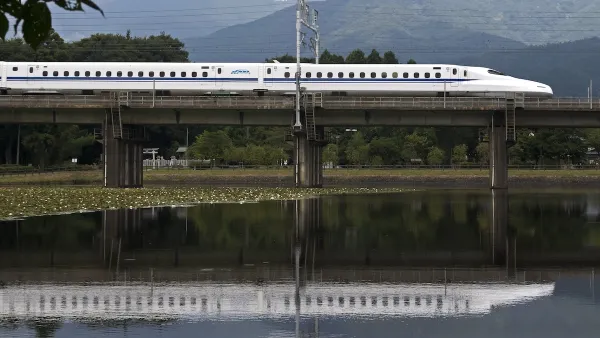Federal money is making high-speed rail possible, but state governments are unsure if they can afford to maintain and operate the systems once they are in place.
Daniel C. Vock of the Pew Center on the States writes, "The price tag of high-speed rail remains a big sticking point, even in Wisconsin, where the federal government granted the state its full request for the Milwaukee-Madison leg. At issue is whether the state could subsidize the route's operating costs once trains start to run in 2013. The state, in its application (PDF), estimated that the Milwaukee-Madison route would require $7.5 million a year in state subsidies, on top of the $8.1 million needed to keep trains running between Milwaukee and Chicago."
Wisconsin Republicans are up in arms over the cost of the new system, and are promising to sink it if they get elected.
FULL STORY: The not-so-fast track for high-speed rail

Maui's Vacation Rental Debate Turns Ugly
Verbal attacks, misinformation campaigns and fistfights plague a high-stakes debate to convert thousands of vacation rentals into long-term housing.

Planetizen Federal Action Tracker
A weekly monitor of how Trump’s orders and actions are impacting planners and planning in America.

In Urban Planning, AI Prompting Could be the New Design Thinking
Creativity has long been key to great urban design. What if we see AI as our new creative partner?

King County Supportive Housing Program Offers Hope for Unhoused Residents
The county is taking a ‘Housing First’ approach that prioritizes getting people into housing, then offering wraparound supportive services.

Researchers Use AI to Get Clearer Picture of US Housing
Analysts are using artificial intelligence to supercharge their research by allowing them to comb through data faster. Though these AI tools can be error prone, they save time and housing researchers are optimistic about the future.

Making Shared Micromobility More Inclusive
Cities and shared mobility system operators can do more to include people with disabilities in planning and operations, per a new report.
Urban Design for Planners 1: Software Tools
This six-course series explores essential urban design concepts using open source software and equips planners with the tools they need to participate fully in the urban design process.
Planning for Universal Design
Learn the tools for implementing Universal Design in planning regulations.
planning NEXT
Appalachian Highlands Housing Partners
Mpact (founded as Rail~Volution)
City of Camden Redevelopment Agency
City of Astoria
City of Portland
City of Laramie





























